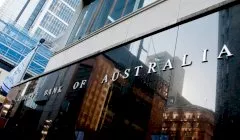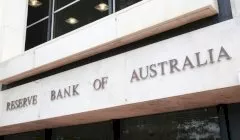Invest
Could ‘cash be king’ again?
Investors have been encouraged to increase allocations of cash as bond rates fall and interest rates rise globally.
Could ‘cash be king’ again?
Investors have been encouraged to increase allocations of cash as bond rates fall and interest rates rise globally.

Roger Montgomery, chief investment officer at Montgomery Investment Management, has told investors the time to consider cash within portfolios is now, as global interest rates are putting downward pressure on the value and price of most assets and central bank policy globally is defined by Quantitative Tightening.
“As interest rates rise, asset values fall, and that applies to all assets – businesses, shares, property, land, everything that produces income,” Mr Montgomery explained.
“All you have to remember is that rising interest rates affect asset values the way gravity affects everything on the earth.”
“It’s a trend that’s likely to play out for some time. And that’s why it makes sense to be holding cash.”

Why are interest rates rising?
According to Mr Montgomery, this trend in rising interest rates is derived from structural changes across many of the central banks, including the US Federal Reserve, the European Central Bank (ECB) and the Bank of Japan (BoJ), towards policies of Quantitative Tightening.
He said it is important for investors to recognise that the US Federal Reserve has been actively trying to reduce the size of the balance sheet by tapering purchases of government bonds at the same time US President Donald Trump has been funding his larger budget deficits, the corporate tax cuts, with bond issues.
“So, what we have today is more US bonds being issued by the US Treasury at a time there is less bond buying by central banks,” Mr Montgomery said.
“In other words, the world’s biggest buyer of bonds over the last 10 years has stopped buying and will begin to sell.
“When supply goes up and demand goes down, bond prices have to fall and, consequently, bond rates have to rise.”
With the Fed reducing its bond purchasing and the US government issuing more bonds to fund its deficits, the higher yields on government bonds are appearing more attractive.
Subsequently, investors who were overallocated in corporate bonds are selling such bonds, driving their yields higher too.
How can this impact investors?
Mr Montgomery said it is vital for investors to understand that when companies on the brink of being financially viable witness their bond ratings fall and experience rising interest rates, they often start to lay off staff or, potentially, go under.
“As the market casts its shadow before it, the time to be concerned is probably now,” he said.
He said that with lower returns predicted for aggregate benchmarks, such as the S&P500, it is important for investors to use caution when investing.
“Now is the time, if there ever was a time, to pursue strategies that emphasise the preservation of capital rather than full participation in rising markets,” Mr Montgomery said.
He warned investors that even if sentiment sparks price rises over the following months, the structural change of global banks means asset valuations will continue falling.
“Cash is most valuable when nobody else has any. That time, when cash is most valuable, appears to have arrived,” he concluded.

Cash
Cash usage in Australia continues to decline as digital payments rise
In the ever-evolving landscape of financial transactions, Australia is witnessing a significant shift away from cash, as revealed by Worldpay's latest Global Payments Report. According to the report, ...Read more

Cash
Navigating the equilibrium: Investor sentiment in the face of equity peaks and diminishing cash reserves
State Street's latest Risk Appetite Index indicates a nuanced shift in institutional investor sentiment during March, with the index reverting slightly towards neutrality. This subtle recalibration in ...Read more

Cash
RBA's November rate hike overshadows Melbourne Cup festivities
In a move that managed to draw attention away from the thrill of the Melbourne Cup, the Reserve Bank of Australia (RBA) has increased the cash rate by 25 basis points to 4.35 per cent, surprising ...Read more

Cash
RBA makes first cash rate call for 2022
The RBA has announced its first rate decision for 2022. Read more

Cash
Cash remains king for many Australians
Demand for banknotes remains high despite a decline in cash transactions. Read more

Cash
Interest rates to rise next year?
Commonwealth Bank has seconded Westpac’s predictions, forecasting that interest rates will rise well ahead of the RBA’s 2024 timeline. Read more

Cash
RBA makes latest official cash rate call
The Reserve Bank of Australia has made its May call on the official cash rate, with the economy said to be a long way from the conditions needed to precede a rate rise. Read more

Cash
RBA puts chatter of an earlier rate hike to rest
The Reserve Bank of Australia has put to rest chatter among investors that conditions for a higher cash rate could be met as early as next year, reaffirming its stance that the rate is “very likely” ...Read more

Cash
Cash usage in Australia continues to decline as digital payments rise
In the ever-evolving landscape of financial transactions, Australia is witnessing a significant shift away from cash, as revealed by Worldpay's latest Global Payments Report. According to the report, ...Read more

Cash
Navigating the equilibrium: Investor sentiment in the face of equity peaks and diminishing cash reserves
State Street's latest Risk Appetite Index indicates a nuanced shift in institutional investor sentiment during March, with the index reverting slightly towards neutrality. This subtle recalibration in ...Read more

Cash
RBA's November rate hike overshadows Melbourne Cup festivities
In a move that managed to draw attention away from the thrill of the Melbourne Cup, the Reserve Bank of Australia (RBA) has increased the cash rate by 25 basis points to 4.35 per cent, surprising ...Read more

Cash
RBA makes first cash rate call for 2022
The RBA has announced its first rate decision for 2022. Read more

Cash
Cash remains king for many Australians
Demand for banknotes remains high despite a decline in cash transactions. Read more

Cash
Interest rates to rise next year?
Commonwealth Bank has seconded Westpac’s predictions, forecasting that interest rates will rise well ahead of the RBA’s 2024 timeline. Read more

Cash
RBA makes latest official cash rate call
The Reserve Bank of Australia has made its May call on the official cash rate, with the economy said to be a long way from the conditions needed to precede a rate rise. Read more

Cash
RBA puts chatter of an earlier rate hike to rest
The Reserve Bank of Australia has put to rest chatter among investors that conditions for a higher cash rate could be met as early as next year, reaffirming its stance that the rate is “very likely” ...Read more








